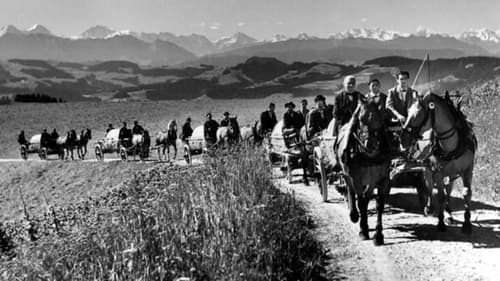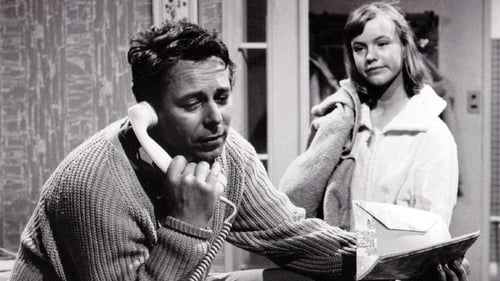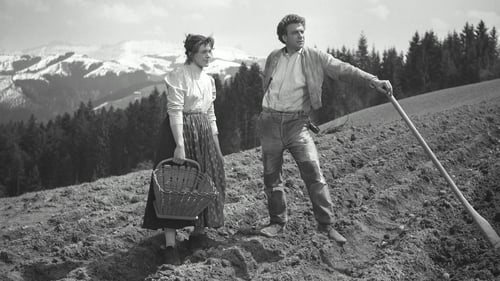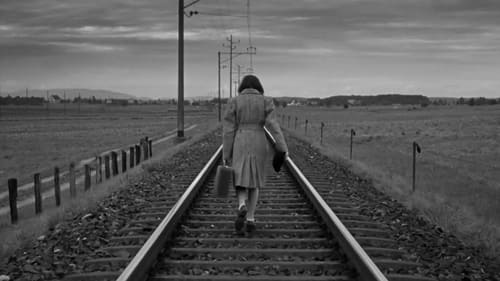Franz Schnyder
Рождение : 1910-03-05, Burgdorf
Смерть : 1993-02-08
История
Franz Schnyder was a Swiss film director and screenwriter. He directed 15 films between 1941 and 1968.

Self

Director

Screenplay

Director

Screenplay
In exploring sex offenses, particularly against children, this film reveals the inner workings of the Zurich police and INTERPOL as they pursue persons accused of voyeurism, rape, fetishism, sadism, and masochism. After the criminals are arrested and given psychological tests, they may be sentenced to an institution or undergo brain surgery (with their consent) in order to be rehabilitated.

Director
In exploring sex offenses, particularly against children, this film reveals the inner workings of the Zurich police and INTERPOL as they pursue persons accused of voyeurism, rape, fetishism, sadism, and masochism. After the criminals are arrested and given psychological tests, they may be sentenced to an institution or undergo brain surgery (with their consent) in order to be rehabilitated.

Screenplay
The further trials of the wealthy Emmentaler farming family Jowäger and their neighbors, adapted from the second volume of the 19th century novel by Jeremias Gotthelf (pen-name of Albert Bitzius).

Director
The further trials of the wealthy Emmentaler farming family Jowäger and their neighbors, adapted from the second volume of the 19th century novel by Jeremias Gotthelf (pen-name of Albert Bitzius).

Screenplay
The trials of the wealthy Emmentaler farming family Jowäger, adapted from the 19th century novel of the same name by Jeremias Gotthelf (pen-name of Albert Bitzius), which was also published in two parts.

Director
The trials of the wealthy Emmentaler farming family Jowäger, adapted from the 19th century novel of the same name by Jeremias Gotthelf (pen-name of Albert Bitzius), which was also published in two parts.

Screenplay
The farmers of a village decide to postpone the construction of a new school in profit of a concentration to cheese production. From a novel by Jeremias Gotthelf.

Director
The farmers of a village decide to postpone the construction of a new school in profit of a concentration to cheese production. From a novel by Jeremias Gotthelf.

Producer
Der 10. Mai (The Tenth of May) was the date in 1940 that Hitler invaded the Low Countries: Belgium, Holland and Luxembourg. Neutral Switzerland, which hadn't experienced a war since the 14th century, hurriedly fortified its borders with battalions of inexperienced soldiers. The panic, confusion and isolated acts of courage which occurred on that fateful day are re-created in this Swiss docudrama. The story is "personalized" by concentrating on a fugitive German soldier (Heinz Reincke) who falls in love with the Swiss girl (Linda Geiser) who shelters him. Produced on a bare-minimum budget, Der 10. Mai is impressive more for its sincerity and raw energy than for its actual cinematic merits.

Writer
Der 10. Mai (The Tenth of May) was the date in 1940 that Hitler invaded the Low Countries: Belgium, Holland and Luxembourg. Neutral Switzerland, which hadn't experienced a war since the 14th century, hurriedly fortified its borders with battalions of inexperienced soldiers. The panic, confusion and isolated acts of courage which occurred on that fateful day are re-created in this Swiss docudrama. The story is "personalized" by concentrating on a fugitive German soldier (Heinz Reincke) who falls in love with the Swiss girl (Linda Geiser) who shelters him. Produced on a bare-minimum budget, Der 10. Mai is impressive more for its sincerity and raw energy than for its actual cinematic merits.

Director
Der 10. Mai (The Tenth of May) was the date in 1940 that Hitler invaded the Low Countries: Belgium, Holland and Luxembourg. Neutral Switzerland, which hadn't experienced a war since the 14th century, hurriedly fortified its borders with battalions of inexperienced soldiers. The panic, confusion and isolated acts of courage which occurred on that fateful day are re-created in this Swiss docudrama. The story is "personalized" by concentrating on a fugitive German soldier (Heinz Reincke) who falls in love with the Swiss girl (Linda Geiser) who shelters him. Produced on a bare-minimum budget, Der 10. Mai is impressive more for its sincerity and raw energy than for its actual cinematic merits.

Director

Screenplay
Uli has been the tenant of the "Glunggen-farm" for two years. His wife Vreneli gave him two children and the couple is happy. But this year, the harvest looks bad and his landlord calls in the rent, as the old man urgently needs money to satisfy the demands of his son and stepson. Desperate to make ends meet, Uli fraudulently sells a cow knowing that she does not produce any milk. He is pursued in court but is acquitted. But then, the buyer curses him... and disaster promptly strikes.

Director
Uli has been the tenant of the "Glunggen-farm" for two years. His wife Vreneli gave him two children and the couple is happy. But this year, the harvest looks bad and his landlord calls in the rent, as the old man urgently needs money to satisfy the demands of his son and stepson. Desperate to make ends meet, Uli fraudulently sells a cow knowing that she does not produce any milk. He is pursued in court but is acquitted. But then, the buyer curses him... and disaster promptly strikes.

Director
Heidi lives with Alp-Öhi n the Swiss Alps in the summer, where she helps Peter tend the goats. In winter, she stays in the village and attends school. One day, a letter arrives from Heidi's German friend, Klara Sesemann, announcing her visit. Klara indeed appears the next summer along with her grandmother and the prim governess Miss Rottenmeyer. Klara is quickly convinced to stay with Heidi, but Peter becomes resentful that Heidi now spends so little time with him...

Screenplay
The film traces Uli's progress from his humble peasant surroundings to the homes of the wealthy and prominent. The characterizations are convincing, and the comic interludes surprisingly subtle and believable for a Swiss film. The no-star cast doomed Uli Der Knecht from the start so far as American distribution was concerned. It was another matter in Switzerland, where the film was one of the year's top moneymakers. Uli der Knecht was based on a novel by Jeremias Gottbelf.

Director
The film traces Uli's progress from his humble peasant surroundings to the homes of the wealthy and prominent. The characterizations are convincing, and the comic interludes surprisingly subtle and believable for a Swiss film. The no-star cast doomed Uli Der Knecht from the start so far as American distribution was concerned. It was another matter in Switzerland, where the film was one of the year's top moneymakers. Uli der Knecht was based on a novel by Jeremias Gottbelf.

Director

Assistant Director
Мария-Луиза — молодая француженка, которая эвакуирована в Швейцарию, когда ее страна наводняется нацистами. Страдая от нервного срыва, она получает укрытие в богатой семье. К сожалению, жизнь в роскоши превращает ее в настолько избалованную девушку, что она отказывается возвращаться на свою недавно освобожденную родину…

Director
A young soldier in an army camp near a small Swiss village gets into an argument with his sergeant, which winds up in a fight. The soldier, believing he has killed the sergeant, flees to Zurich, determined to disguise himself and cross the border into France. However, things don't work out quite as he had planned.

Director
In Bern above Junkerngasse 54 the caretaker has died - the old Hutzli. On the day on which he was buried, it's started again, this howling in the middle of the night - scary. Since then, no one dares to live there.

Director
Gilberte Montavon was a legend in her own lifetime. As a young woman, she was confidante to hundreds of thousands of Swiss-German speaking soldiers during the First World War, and remembered most of their names. She was still a teenager when the war began, and was immortalised by a song written during the war years by the Swiss-German bard and lute player, Hans Inn der Gand.

Peter Munk
A poor and lonely coal seller trades his heart to a demon of the forest, hoping to improve his condition. It won't be long before the consequences of his actions catch up to him.



















